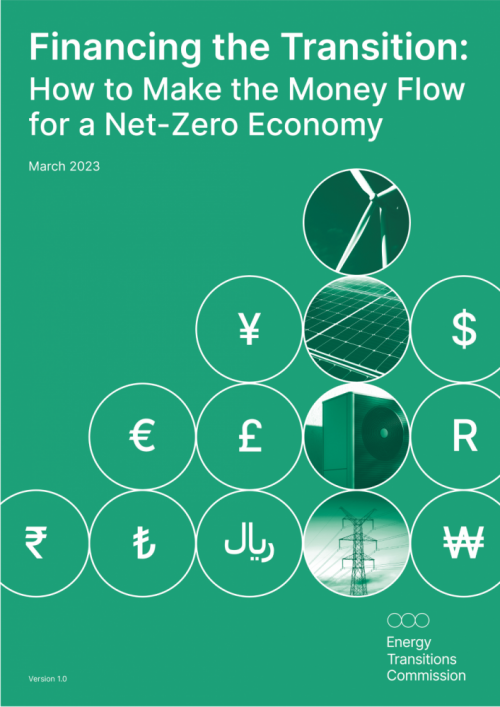
https://www.energy-transitions.org/publications/financing-the-transition...
Two conceptually different categories of financial flow will be required for the transition – capital investment and concessional/grant payments – for early coal phase-out, deforestation and carbon dioxide removals. With the right government policies in place, investment will come primarily from business, whilst concessional/grant payments will need funding through voluntary carbon markets, philanthropy and governments.
In its latest report Financing the Transition: How to make the money flow for a net-zero economy the ETC highlights the critical importance of strong government policies relating both to the real economy and to the financial system if finance is to flow on the scale required. It also identifies “concessional/grant” payments needed to support early coal phase-out, end deforestation and finance carbon removals.
Around $3.5 trillion a year of capital investment will be needed on average between now and 2050 to build a net-zero global economy, up from $1 trillion per annum today. Of this, 70% is required for low-carbon power generation, transmission, and distribution, which underpins decarbonisation in almost all sectors of the economy.
Part of the investment needed will be offset by declining investment in fossil fuels, cutting the $3.5 trillion per annum requirement to a net $3 trillion. This is equivalent to 1.3% of potential average annual global GDP over the next 30 years. In middle- and low-income countries, much of the investment would be required to support economic growth even in the absence of a climate change challenge.
Conceptually separate from capital investment (which will deliver positive economic returns), “concessionary/grant” payments will be required to help cover the economic costs of early coal phase-out, to offset the incentives to deforest, and to fund carbon dioxide removals.
Concessional/grant payments in middle- and low-income countries (excluding China) will be essential this decade if the world is to achieve its 1.5°C objectives and could amount to around $0.3 trillion a year by 2030. This money could, in theory, come from corporates via voluntary carbon markets, philanthropy, and high-income countries.
Overview
The Energy Transitions Commission (ETC) is a global coalition of leaders from across the energy landscape working together to accelerate the transition to a zero-emissions future.
We develop transition roadmaps and tools building on robust analysis and extensive exchanges with experts and practitioners across energy-intensive value chains. This work is generally undertaken with a range of partners, industry associations, NGOs and experts. In the harder-to-abate sectors specifically, we work under the umbrella of the Mission Possible Platform, an initiative established by the ETC and the World Economic Forum.










Add new comment